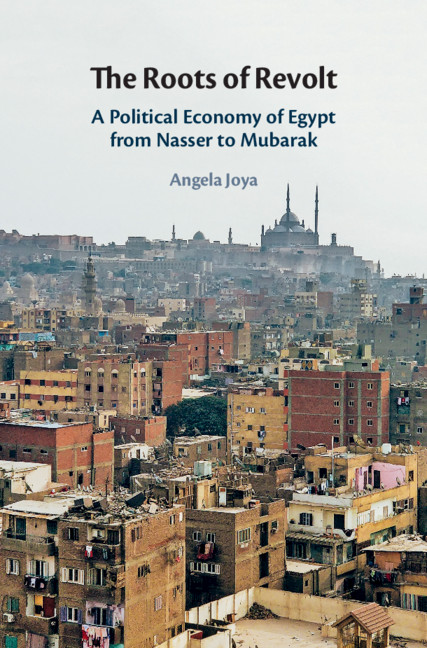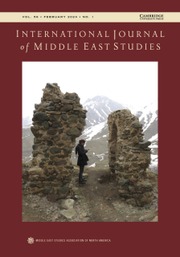The Roots of Revolt
A conceptually rich, historically informed, and interdisciplinary study of the contentious politics emerging out of decades of authoritarian neoliberal economic reform, The Roots of Revolt examines the contested political economy of Egypt from Nasser to Mubarak, just prior to the Arab Uprisings of 2010–11. Based on extensive fieldwork conducted across rural and urban Egypt, Angela Joya employs an 'on the ground' approach to critical political economy that challenges the interpretations of Egyptian politics put forward by scholars of both democratization and authoritarianism. By critically reassessing the relationship between democracy and capitalist development, Joya demonstrates how renewed authoritarian politics were required to institutionalize neoliberal reforms demanded by the International Monetary Fund, presenting the real-world impact of economic policy on the lives of ordinary Egyptians before the Arab Uprisings.
- A conceptually rich, historically informed study of the contested politics emerging out of decades of authoritarian neoliberalism in Egypt
- Presents the real-world impact of economic policy on the lives of ordinary Egyptians before the Arab Uprisings
- Will be of interest to scholars of political economy and Middle East studies, as well as to graduate and undergraduate students of international studies
Reviews & endorsements
'Deftly linking national, regional, and global dynamics, Joya provides a meticulous and informed account of neoliberal change in Egypt. Writing against a dominant narrative that ties market liberalisation to political freedoms, she convincingly details the emergence of neoliberal authoritarianism in Egypt and the rise of a new class fraction of capital. A powerful contribution to our understanding of Egypt's political economy that deserves to be widely read.' Adam Hanieh, School of Oriental and African Studies, University of London
'Joya meticulously documents the class struggles unleashed by more than two decades of neoliberal restructuring in Egypt, demonstrating the importance of a Marxist political economy framework not only for understanding the outbreak of the 25 January 2011 Revolution but also for the ongoing political and social conflicts in post-Mubarak Egypt.' Nicola Pratt, University of Warwick
'In the 1980s and 1990s all the big books on the political economy of Egypt argued that market liberalization would lead to increased growth, better lives for most Egyptians, an end to the corruption that undergirded authoritarian rule, and a transition to democracy. They were wrong. In Roots of Revolt, the first big book on Egyptian political economy for the 2020s, Angela Joya explains why neoliberal reforms delivered none of the imagined benefits. Instead, liberalization entailed a process of capital accumulation by dispossession that impoverished urban and rural dwellers alike, while opening up a path for the military, which has ruled continuously since 1952, to become the most powerful and resourceful of today’s Egyptian capitalist class fractions.' Robert Vitalis, University of Pennsylvania
‘Overall, this book offers empirically rich content and evokes a broad-based discussion about the significant role the Egyptian state and IFIs have played in the process of facilitating capital accumulation by polarizing wealth distribution and access to economic resources. The book will be invaluable to those seeking to develop a deeper understanding of Egypt’s political and social conflicts that are exacerbated by the erosion of access to basic welfare services and the repressive and exclusionary experiences of the poor, the middle classes, and peasant and workers.’ Housam Darwisheh, The Developing Economies
‘Joya’s contribution is one of the most interesting attempts to enrich our understanding of how the composition of the Egyptian capitalist class and the relative strength of its fractions changed over time … an opening for further research.’ Gianni Del Panta, The Middle East Journal
Product details
May 2020Hardback
9781108478366
280 pages
234 × 157 × 19 mm
0.5kg
Available
Table of Contents
- 1. Neoliberal authoritarianism in contemporary Egypt
- 2. The developmentalist state and the market economy: from Nasser to Sadat
- 3. 'We need the government to unleash us, the tigers': Mubarak and the neoliberal turn
- 4. 'We feed the nation': the military as a fraction of capital
- 5. The mosque and the market: the Muslim Brotherhood
- 6. 'Strike like an Egyptian': workers and the collapse of the authoritarian bargain
- 7. 'You let the dogs eat the peasants': peasants and small farmers and accumulation by dispossession
- Conclusion.







